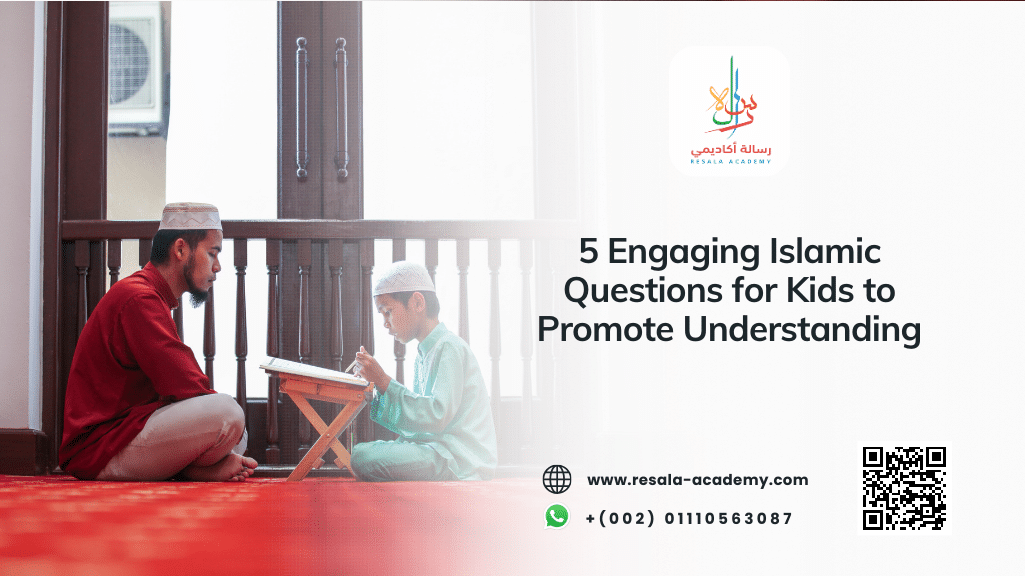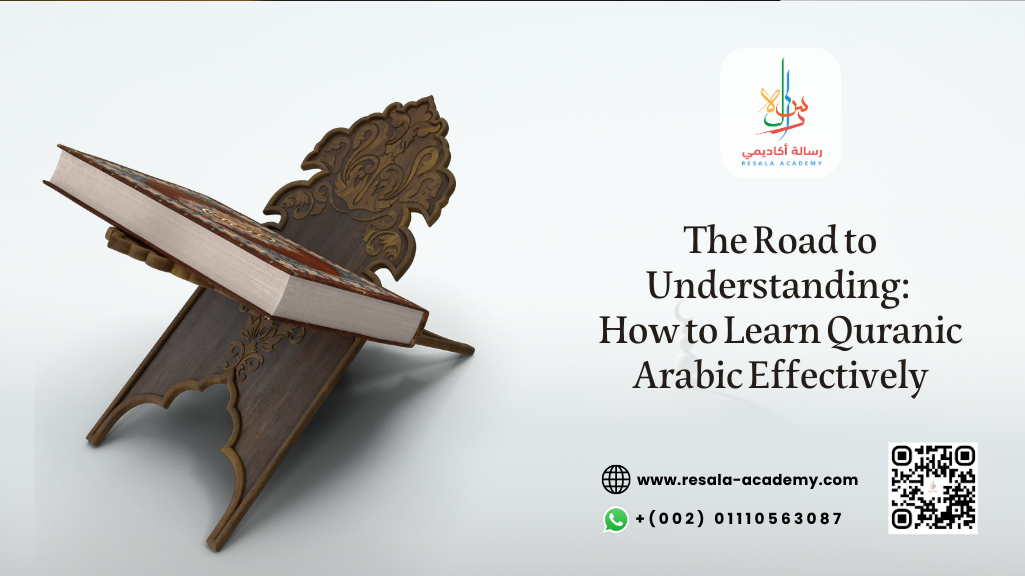Table of Contents
5 Engaging Islamic Questions for Kids to Promote Understanding
In today’s diverse and interconnected world, children must have a deep understanding and appreciation of different cultures and religions. One such religion that holds great significance is Islam. By introducing Islamic Questions for Kids at an early age, we can foster tolerance, and respect, and promote cultural understanding.
Islam, which means “submission” or “surrender,” is one of the world’s major religions with over 1.8 billion followers worldwide. It encompasses a rich array of beliefs, practices, and principles that guide the lives of Muslims across the globe.
As parents or educators, it is our responsibility to help instill in children a thorough knowledge and appreciation for Islam. By engagingly answering their questions, we can provide them with valuable insights into this beautiful faith while fostering empathy and promoting harmony among all individuals regardless of their religious background.
So let’s dive into five engaging Islamic questions for kids that will not only pique their curiosity but also promote greater understanding!
The Importance of Islamic Questions for Kids
In today’s diverse and interconnected world, teaching children about Islam holds great importance. By introducing them to the principles and beliefs of this religion at an early age, we can help foster tolerance, respect, and cultural understanding.
Islam is one of the world’s major religions with over 1.8 billion followers globally. It encompasses a rich array of beliefs and practices that guide the lives of Muslims around the world. By educating children about Islam, we enable them to appreciate its diversity and significance in shaping our global society.
Understanding Islam also helps combat stereotypes and misconceptions that can arise from ignorance or misinformation. Teaching children about this religion allows them to embrace diversity while nurturing empathy towards individuals who follow different faiths.
Furthermore, learning about Islam equips children with knowledge for meaningful interactions with their Muslim peers or neighbors. It promotes inclusivity by fostering mutual respect and creating bridges between cultures.
By prioritizing Islamic education for young learners, we empower them to become well-rounded individuals who appreciate religious diversity and actively contribute to building harmonious communities where people from all backgrounds can thrive together.
What is the meaning of “Islam”?
Islam, the largest religion in the world, holds significant importance for over 1.8 billion Muslims globally. But what does “Islam” actually mean? In Arabic, Islam means “peace” or “submission to Allah ‘s will.” It is a comprehensive way of life that encompasses every aspect of an individual’s existence.
At its core, Islam teaches believers to submit themselves fully and unconditionally to Allah and follow His guidance as revealed through the Quran and the teachings of Prophet Muhammad (peace be upon him). Muslims believe that by surrendering their will to Allah, they can attain inner peace and harmony.
Islam emphasizes monotheism – belief in one Allah – without any partners or associates. This concept is known as Tawhid. Muslims strive to recognize Allah as the one true deity who created everything in existence.
Furthermore, Islamic teachings encourage followers to engage in acts of worship such as prayer, fasting during Ramadan, giving charity (Zakat), performing pilgrimage (Hajj), and adhering to moral values outlined by Shariah law. These practices aim at fostering spiritual growth while promoting kindness, justice, humility, compassion, and respect for others.
How many times a day do Muslims pray?
Muslims pray five times a day as part of their religious practice. These prayers, known as Salah or Salat, are an essential aspect of a Muslim’s daily life and serve as a means of connecting with Allah. The five prayer times are Fajr (before dawn), Dhuhr (midday), Asr (afternoon), Maghrib (sunset), and Isha’ (night).
Each prayer has its specific time frame during the day when it is performed. Muslims strive to adhere to these fixed prayer times regardless of their location or circumstances, demonstrating their commitment to maintaining a strong spiritual connection throughout the day.
Praying multiple times each day allows Muslims to pause their activities and focus on worshiping Allah. It serves as a reminder that Allah is present in every aspect of their lives and encourages them to seek guidance, strength, and forgiveness through prayer.
The act of praying also fosters discipline and mindfulness among children by instilling regularity in their routines. Moreover, it helps children develop patience and perseverance while building self-discipline from an early age.
Understanding how many times Muslims pray can promote cross-cultural understanding among children by familiarizing them with Islamic practices while emphasizing the importance of spirituality in daily life.
What is the significance of fasting during Ramadan?
Fasting during Ramadan is one of the most significant practices in Islam. It holds great importance for Muslims around the world. During this holy month, Muslims abstain from food and drink from dawn until sunset. But fasting is not just about physical hunger and thirst; it has a much deeper meaning.
Fasting during Ramadan helps to cultivate self-discipline and self-control. By willingly refraining from eating or drinking during daylight hours, Muslims learn to control their desires and impulses. This practice teaches patience and perseverance as individuals strive to resist temptation throughout the day.
Fasting is a way for Muslims to empathize with those who are less fortunate. By experiencing hunger firsthand, they develop compassion and understanding for those who face poverty or scarcity every day. Fasting reminds us of our blessings and encourages generosity towards others.
Fasting allows individuals to focus on spiritual reflection and devotion. With the absence of distractions like food or drink, Muslims can concentrate on prayer, recitation of Quranic verses, charity work, and acts of kindness towards others.
Fasting serves as a means of purifying the soul and seeking forgiveness from Allah. It offers an opportunity for repentance and renewal as individuals reflect upon their actions throughout the year.
Why do Muslims give charity?
Why do Muslims give charity? Giving charity, or “sadaqah,” holds significant importance in Islam. It is considered a fundamental part of being a Muslim and fulfilling one’s duty towards others.
Giving charity is a way for Muslims to purify their wealth and cleanse their souls. By sharing their blessings with those less fortunate, they demonstrate gratitude and humility before Allah.
Giving charity fosters compassion and empathy within the Muslim community. It encourages individuals to be mindful of the needs of others and extend a helping hand whenever possible.
Giving charity promotes social cohesion by bridging the gap between different socioeconomic backgrounds. It helps create an environment where everyone feels valued and cared for.
Giving charity is seen as an act of worship that brings immense rewards both in this life and the hereafter. Muslims believe that every good deed, including charitable acts, is recorded by Allah and will be rewarded accordingly.
Donating to those in need is not only an obligation but also a means for personal growth and spiritual fulfillment for Muslims.
By practicing generosity through regular acts of sadaqah, they contribute to building stronger communities rooted in love, kindness, and equality.
What are the Five Pillars of Islam?
The Five Pillars of Islam are the five essential practices that every Muslim should uphold. These pillars form the foundation of a Muslim’s faith and serve as a guide for leading a righteous life. Let’s explore each pillar briefly.
1. Shahada:
The first pillar is the declaration of faith, known as the Shahada. It is the statement that there is no deity worthy of worship except Allah, and Muhammad (peace be upon him) is His messenger. By reciting this declaration sincerely, one enters into Islam.
2. Salah:
The second pillar is Salah or daily prayers. Muslims perform five obligatory prayers throughout the day at specific times – dawn, noon, afternoon, evening, and nightfall – facing towards Mecca.
3. Zakat:
The third pillar is Zakat or almsgiving. Muslims who meet certain financial criteria are required to give a portion of their wealth (usually 2.5%) to those in need within their community.
4. Sawm:
The fourth pillar is Sawm or fasting during Ramadan – the ninth month of the Islamic lunar calendar when Muslims abstain from food, drink, and other physical needs from sunrise till sunset as an act of self-discipline and devotion to Allah.
5. Hajj:
Finally, we have Hajj -the pilgrimage to Mecca- which all able-bodied adult Muslims must undertake at least once in their lifetime if they can afford it physically and financially.
Understanding these pillars helps children grasp the significance of these practices in a Muslim’s life by promoting spiritual growth, compassion for others, discipline, and unity among believers.
Tips for Discussing and Answering These Questions with Children
Discussing and answering Islamic questions with children can be a wonderful opportunity to promote understanding and tolerance. Here are four tips to engage kids in these conversations:
1. Use age-appropriate language:
When discussing Islam with young children, it’s important to use simple and clear language that they can understand. Avoid jargon or complex concepts that might confuse them. Instead, break down the information into bite-sized pieces and relate it to their everyday experiences.
2. Encourage curiosity:
Children naturally have curious minds, so encourage them to ask questions about Islam. Create a safe space where they feel comfortable expressing their thoughts and ideas without fear of judgment. Answer their questions patiently and honestly, fostering an open dialogue that promotes learning.
3. Incorporate visuals:
Visual aids such as pictures, videos, or books can greatly enhance children’s understanding of Islamic practices and beliefs. Show them images of mosques or Muslims praying to help visualize what you’re explaining. This visual stimulation will make the information more engaging for kids.
4. Encourage empathy:
Teach children about the importance of empathy towards people who practice different religions, including Islam. Help them understand that just like they have values and traditions unique to their family or community, Muslims also have their own set of beliefs that should be respected.
These tips will help create meaningful discussions with children about Islam while promoting understanding and acceptance at an early age.
Resala Academy Offers Online Islamic Studies Course
Resala Academy is excited to offer an online Islamic studies course for children of all ages. This comprehensive program aims to provide a solid foundation for understanding and appreciating the principles, values, and teachings of Islam. With experienced instructors who are knowledgeable in various aspects of Islamic studies, students can expect engaging lessons that cater to their individual needs and learning styles.
In this course, children will explore various topics such as the basics of Islam, the life of Prophet Muhammad (peace be upon him), stories from the Quran, and much more. The curriculum is designed to foster a deep understanding and love for Islam while promoting critical thinking skills and moral values.
One of the key advantages of taking this online course is its flexibility. Students can access the lessons at their own pace from anywhere with an internet connection. Whether they prefer study sessions in the comfort of their homes or during travel, Resala Academy ensures that knowledge about Islam is accessible anytime.
Additionally, parents can feel confident knowing that each lesson has been carefully crafted by qualified educators who have expertise in teaching young minds about religion in an age-appropriate manner. This ensures that children receive accurate information while being engaged through interactive activities and multimedia resources.
Enroll your child today at Resala Academy’s online Islamic studies course to provide them with a rich educational experience centered around fostering a strong connection with their faith!
FAQs
1. How can I teach my children about Islam in an age-appropriate way?
Teaching children about Islam is important for fostering understanding and tolerance. Start by using simple language to explain the meaning of “Islam” as a peaceful religion based on belief in one Allah. Introduce Islamic concepts gradually and encourage questions to promote curiosity and engagement.
2. What is the significance of fasting during Ramadan?
Fasting during Ramadan holds great importance for Muslims worldwide. It teaches self-discipline, empathy towards those less fortunate, and gratitude for blessings in life. Explain that Muslims fast from dawn until sunset during this holy month, refraining from food, drink, and other physical needs.
3. Why do Muslims give charity?
Charity plays a vital role in Islamic teachings as it promotes compassion and social responsibility. Teach your children that giving charity not only helps those in need but also purifies the giver’s heart. Encourage them to participate in acts of kindness such as donating toys or money to charitable causes.
4. What are the Five Pillars of Islam?
The Five Pillars form the foundation of Islamic faith and practice: Shahada (faith), Salat (prayer), Zakat (charity), Sawm (fasting) during Ramadan, and Hajj (pilgrimage). Explain each pillar briefly to your child so they understand its significance within their Muslim community.
Conclusion
Teaching children about Islam is crucial for promoting understanding and tolerance in our increasingly diverse world. By introducing them to the basic principles and practices of Islam, we can help them develop a respect for different cultures and religions.
Through engaging Islamic questions such as the meaning of “Islam,” the importance of prayer, fasting during Ramadan, giving charity, and the Five Pillars of Islam, we can spark curiosity in children and encourage them to explore this rich faith further.
Remember to approach these discussions with patience, sensitivity, and age-appropriate explanations. Use real-life examples whenever possible to make it relatable for kids. Encourage open dialogue where they feel comfortable asking questions or sharing their thoughts.
If you want your child to have a more comprehensive understanding of Islam or if you are looking for convenient online resources to supplement their learning at home, consider enrolling them in Resala Academy’s Online Islamic Studies Course. With experienced instructors and interactive lessons tailored for children of all ages, this course offers an excellent opportunity for young learners to deepen their knowledge about Islam.
By equipping our children with accurate information about Islam from an early age while fostering an environment that celebrates diversity and promotes inclusivity, we can contribute towards building a more harmonious society based on mutual respect and understanding.




